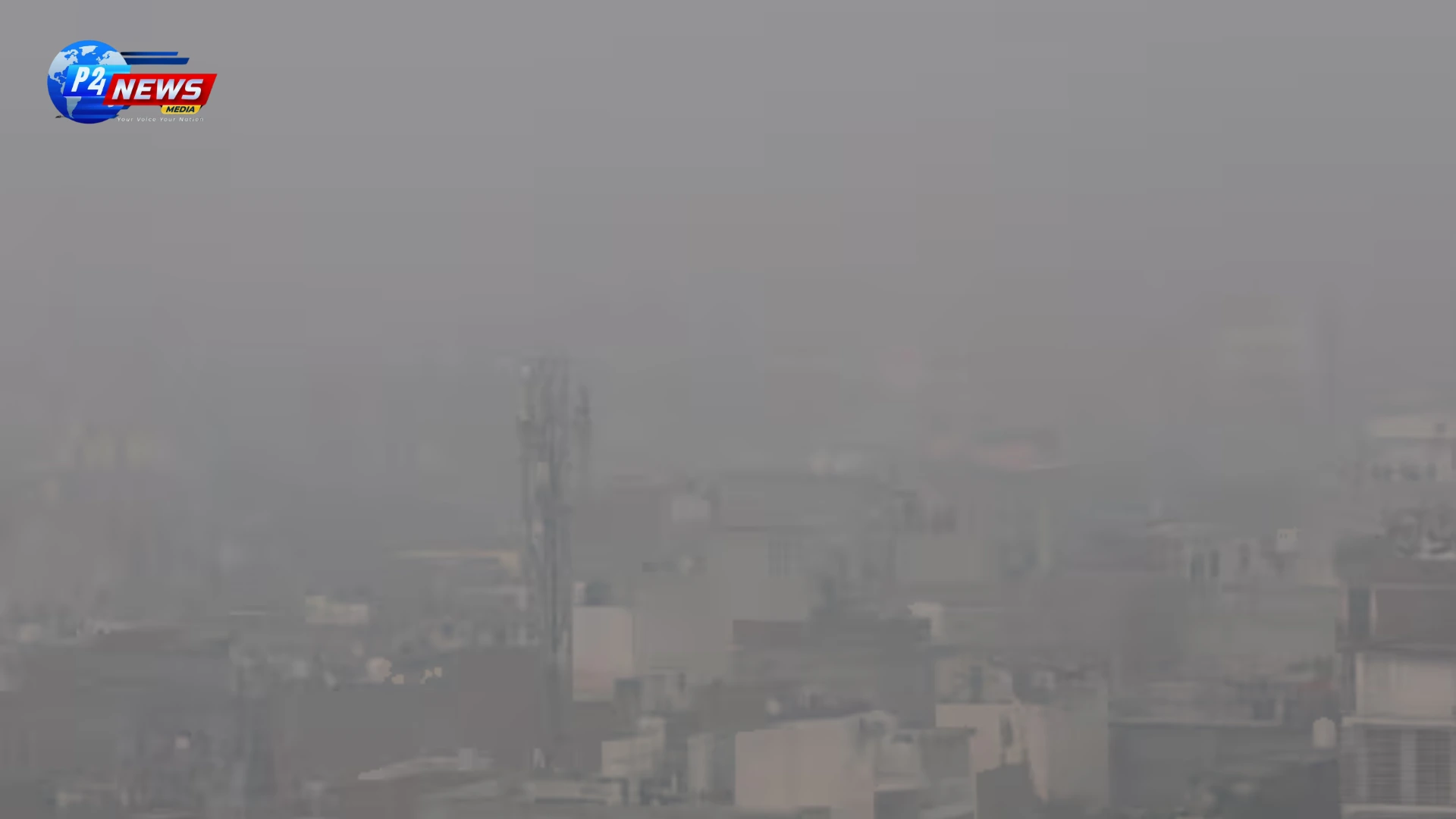As Delhi grapples with record pollution levels, the city is engulfed in smog, prompting emergency measures such as school closures and restrictions on heavy vehicles.
As Delhi grapples with record pollution levels, the city is engulfed in smog, prompting emergency measures such as school closures and restrictions on heavy vehicles.
Delhi, the capital of India, is currently facing an unprecedented pollution crisis, with air quality reaching a staggering low and enveloping the city in thick brown smog. As the people of Delhi navigate through this sharp decline in air quality, emergency measures have become necessary. The pollution levels have surged to alarming heights, with certain areas recording air quality indices (AQI) that exceed the safe threshold by more than 30 times, as reported by IQAir.
On record, the air quality index marked a severe reading of 484, categorizing the pollution as "severe plus"—the worst measurement this year. For reference, an AQI level between 0 and 50 is considered "good." The dire state of the atmosphere forced authorities to take drastic steps, including shuttering schools and moving educational activities online, halting all non-essential construction work, and prohibiting heavy vehicles from entering the city.
This annual crisis has become a grim reality for Delhi and its surrounding areas, impacting over 30 million residents. Experts warn that toxic air quality could shorten life expectancy in the capital by an average of seven years, causing significant public health concerns.
The onset of winter in northern India triggers a familiar cycle of smog, which traps harmful pollutants. Major contributors to this problem include emissions from millions of vehicles and pollution from waste burning, construction activities, and industrial outputs. Stubble burning, primarily practiced by farmers after harvesting, exacerbates the situation, contributing as much as 40% to the recent surge in pollution levels. This illegal practice, although punishable by heavy fines, persists across several states, as evidenced by satellite data identifying over a thousand burning events recently.
Amid growing concern, India's Supreme Court recognized clean air as a fundamental human right and mandated both federal and state governments to take decisive actions. However, many of these initiatives have fallen short in effectively reversing the troubling trend of deteriorating air quality.
In a city marked by stark socio-economic divides, access to clean air continues to highlight inequalities between the affluent and the less privileged. For many laborers who work outdoors, the battle for clean air is a relentless struggle. Shagun Devi, a domestic worker, reflected on her experiences, stating that the air quality at home feels no different from the polluted streets. As she walks to work daily, she grapples with health issues, unable to afford much-needed air purifiers to protect her family.
Similarly, Sheikh Imamuddin, a 70-year-old street vendor, fears for his health amid worsening air conditions. Struggling with asthma, he finds himself frequently visiting the hospital, aware that his source of income comes with severe health risks due to the polluted environment. He expressed a sense of despair, stating, “People must breathe, even if they know they are inhaling poison.”
As frustration mounts, the Supreme Court has recently admonished the Delhi government for its sluggish response to pollution control measures. The political blame game has also resumed, with Delhi's ruling party attributing the crisis to neighboring states controlled by the central government.
In light of the severe air quality, many residents who can afford it are choosing to flee the capital. Aarti Sharma, a tech professional, described her recent escape to Kerala as a necessary reprieve from the unbearable conditions in Delhi. She lamented that her situation was privileged, leaving the majority of people with no viable options.
Meanwhile, environmental experts have convened to address the critical issue of air pollution, underscoring the urgency for governments to act. Aarti Khosla, the director of Climate Trends, emphasized the necessity for substantial action given the health risks facing millions due to climate-related realities.
The pollution crisis in Delhi serves as a stark reminder of the broader challenges posed by environmental neglect and the tangible impacts on public health—a crisis that demands swift and effective intervention.
Like
Dislike
Love
Angry
Sad
Funny
Pray
9th Ayurveda Day in Melbourne: A Celebration of Ayurvedic Innovations and Global Health Impact
November 10, 2024Australia’s Terror Alert Jumps to ‘Probable’: What You Need to Know About the Increased Risk
August 05, 2024🍪 We Value Your Privacy and Experience Hi there! We use cookies to enhance your browsing experience, provide personalized content, and analyze site traffic. By continuing to use our site, you consent to our use of cookies.







Comments 0